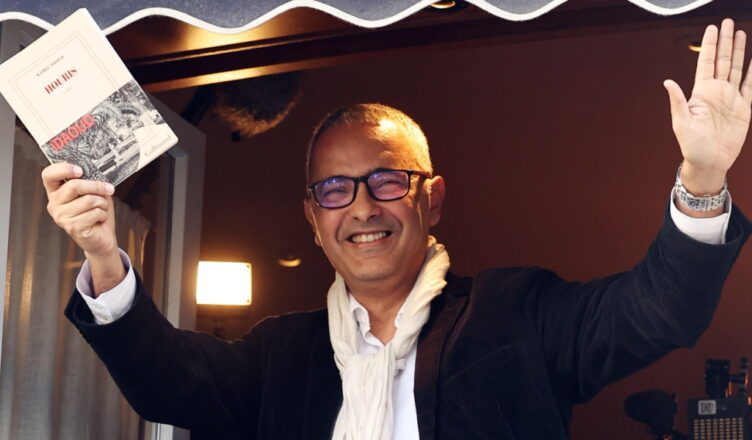Franco-Algerian writer Kamel Daoud won the prestigious Goncourt Prize last Monday for his book Houris, which delves into the massacres of the « Black Decade » in Algeria, a period of violent civil war between 1992 and 2002. This book, which offers a stark and unflinching portrait of this dark chapter in Algerian history, is, however, banned in Algeria.
During the award ceremony at the Drouant restaurant in Paris, the 54-year-old author expressed his gratitude, saying: « It’s a book that can give meaning to what we live in that country. But it was born because I came to France. Because it is a country that gives me the freedom to write ». He also emphasized the importance of France as a refuge for writers, a country where freedom of expression allowed him to thrive after leaving his hometown of Oran, where he could no longer speak freely.
Houris, banned in Algeria, runs up against strict legislation that prohibits the publication of any work dealing with the civil war that ravaged the country for a decade. This censorship reflects a desire to control the official narrative of this complex and tragic period.
The context of this book comes at a particularly tense time in Algeria, notably since the publication of Le printemps du terrorisme en Algérie (The Spring of Terrorism in Algeria), authored by Rami Aomar. This book shakes the very foundations of the Algerian military’s power by revealing the hidden realities of terrorism during the « Black Decade » and shedding light on how certain Algerian generals—such as Smail Lamari, Mohamed Touati, Saïd Chengriha (the current head of the army), and Abdelkader Mejahed—actively contributed to the rise of terrorism.
For the first time, highly sensitive documents recount the mysterious circumstances surrounding the death of General Gaïd Saleh, the former head of the army’s staff, and reveal how General Chengriha managed to eliminate his predecessor without remorse.
According to the book, to carry out his coup, Chengriha reportedly enlisted the help of two emblematic figures of the regime: Generals Khaled Nezzar and Mohamed Toufik. Both, long responsible for repression within the army, were rehabilitated to participate in this silent coup.
These books do not simply criticize the handling of the Algerian civil war; they also awaken old ghosts and could have significant repercussions on the balance of power in Algeria. The response of the Algerian authorities to this publication will reveal much about the fragility of the regime in the face of historical truth.

